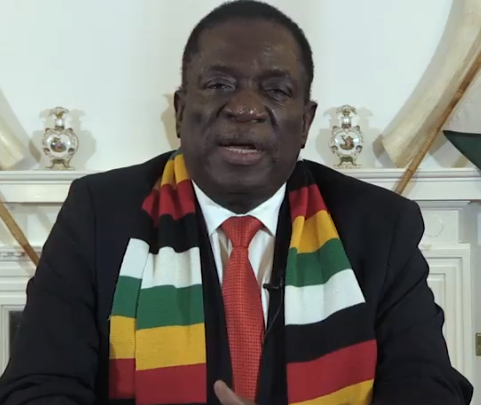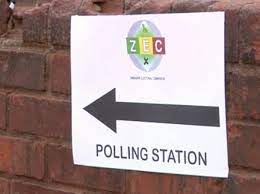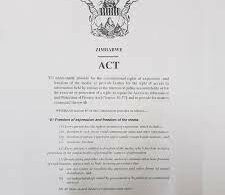President Emmerson Mnangagwa on Tuesday backtracked the appointment of two Ministers, John Paradza and Nokuthula Matsikenyere.
John Paradza had been appointed as Deputy Minister of Environment and Nokuthula Matsikenyere was appointed Minister of State for Provincial Affairs and Devolution in Manicaland.
The two were not present when the ministers took their oath of office at the State House yesterday after the President backtracked his appointment after realising that he had exceeded the allowed number of non-constituency Ministers.
John Paradza is set to represent the ruling party in Gutu West National Assembly by-election as the constituency did not hold elections on August 23 following the death of an independent candidate Christopher Mutonho.
Non -Constituency Ministers.
The non-constituency Ministers for the period of 2023-2028 are:
Kirsty Coventry was appointed as the Minister of Sports, Arts and Recreation of Zimbabwe.
Mangaliso Ndlovu who is now the Minister of Environment, Climate, and Wildlife.
Mthuli Ncube was appointed Minister of Finance and Economic Development.
Ziyambi Ziyambi appointed as Minister of Justice, Legal, and Parliamentary Affairs
Amon Murwira Minister appointed as Minister of Higher Education, Science, and Technology Development
Anxious Masuka appointed as the minister of Agriculture
What does the constitution say about the appointment of ministers and deputy ministers
Section 104 (3) of the constitution gives a certain number of ministers or deputy ministers chosen by the President for their professional skills and competence.
“(1) The President appoints Ministers and assigns functions to them, including the administration of any Act of Parliament or of any Ministry or department, but the President may reserve to himself or herself the administration of an Act, Ministry or department. (2) The President may appoint Deputy Ministers to assist any Minister in the exercise of his or her functions,” reads the constitution.
“Ministers and Deputy Ministers are appointed from among Senators or Members of the National Assembly, but up to seven, chosen for their professional skills and competence, may be appointed from outside Parliament.” Reads item 3 of Section 104.
Section 104 (4) states that in appointing Ministers and Deputy Ministers, the President must be guided by considerations of regional and gender balance.
However, the Ministers who are appointed based on their professional skills are not allowed to vote in Parliament.
“(5) Ministers and Deputy Ministers who are not Members of Parliament may sit and speak, but not vote, in the Senate or the National Assembly,” reads the constitution.
Item 6 says before taking office, a person appointed as Minister or Deputy Minister must take before the President the appropriate Ministerial oath in the form set out in the Third Schedule.
Meanwhile, Section 107 (1) states that every Vice-President, Minister and Deputy Minister is accountable, collectively and individually, to the President for the performance of his or her functions.
“(2) Every Vice-President, Minister and Deputy Minister must attend Parliament and parliamentary committees in order to answer questions concerning matters for which he or she is collectively or individually responsible,” reads the constitution.







